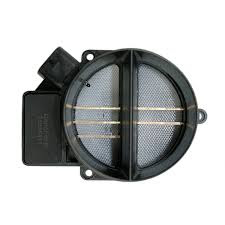Cheap winter tires vs high quality all-seasons tires : which are best
We're immersed in attending costume parties or decorate the house to celebrate Halloween.It seems that 2017 will come to an end and the long winter is coming soon.Are your BMW 328i or Honda CR-V ready for the oncoming of the winter?
What's winter tires and do I even need winter tires ? Many drivers aren’t sure and will ask such question when it comes to driving in winter weather.
What is winter tires ?
Winter tires,also called snow tires,which are designed for use on snow and ice. Winter tires have a tread design with bigger gaps than those on summer tires, increasing traction on snow and ice. Such tires that have passed a specific winter traction performance test are entitled to display a "Three-Peak Mountain Snow Flake" symbol on their sidewalls. Tires designed for winter conditions are optimized to drive at temperatures below 7 °C (45 °F). Some winter tires have metal or ceramic studs that protrude from the tire to increase traction on hard-packed snow or ice. Studs abrade dry pavement, causing dust and creating wear in the wheel path.Regulations that require the use of snow tires or permit the use of studs vary by country in Asia and Europe, and by state or province in North America.Related to snow tires are those with an M+S rating, which denotes an all-season capability—quieter on clear roads, but less capable on snow or ice than a winter tire.
Winter tires vs all-seasons tires
All-season tires are built to handle a variety of road conditions - dry roads, wet roads, and in many cases, light snow. Winter tires are built specifically to perform in winter conditions like low temperatures, ice, slush, and snow. The tread compound of all-season tires can harden in low temperatures, so there's less traction between the road and your tires. But winter tires use special rubber compounds that stay pliable in the cold, giving them better grip and improved braking, even in extreme conditions.
If you wonder whether your all-season tires perform just as well in snow as winter tires, we have the answer. They don’t and not even close. Most winter tires outperform all-season tires in snow, rain and even on ice. They have a more aggressive tread pattern and are made from a softer rubber compound. The softer compound allows the tread to squash around the snow, compact it, and then toss it out as the tire rotates. Some winter tires even incorporate closed-cell bubbles in the tread material. But as you drive, road friction cuts the outer layer of bubbles and sharpens the edges of each one. It’s like having a few thousand freshly made squeegees wiping the road as you drive. The end result is better traction, more stability in turns, and much better stopping power.
Since winter tires outperform all-season tires,someone get confused that can I use my winter tires all year round? We certainly wouldn't recommend it. When used in warm weather, the softer rubber compound can wear out faster than the compound used in all-season tires. If you used your winter tires year-round, it would end up costing you more than switching between two sets of tires.
Which are best
The solution to the winter tires vs. all season tires question will depend on where you live and the conditions in which you drive.
If you only see a few snow flurries each year and slick, icy roads are more of a fluke than an annual ordeal, all season tires are probably the way to go. But if you know there’s a period when icy roads are always an issue, mounting winter tires isn’t an over-the-top precaution – it’s an essential safety measure that could save your life.
When mounting winter tires for the season, always install a full set. Just changing out the front tires increases the likelihood that the rear tires will skid. Likewise, just putting snow tires on the rear wheels could cause the front tires to lose traction and make it impossible to steer your vehicle.
And remember to re-mount those all season tires when spring rolls around. While winter tires are undeniably superior in extreme winter conditions, they’ll wear down faster on warm, dry pavement.
In conclusion
For the hot topic ,cheap winter tires vs high quality all-seasons tires,how to chose ?
Our answer is all else being equal,winter tires are better than all seasons for winter conditions.Though all seasons can do well enough on ice if it's only around 0°C, but when it's -20°C out or colder,the rubber of winter tires may as well be brick and perform better than all season,for example stopper soon and grip better.
We are dedicated to providing reviews, tutorials, and much more on cars,ATV and motorbike. If you like it and want to see more,you could keep an eye on our blog as we have lots of blogs about automotive on the way.







Comments
Post a Comment